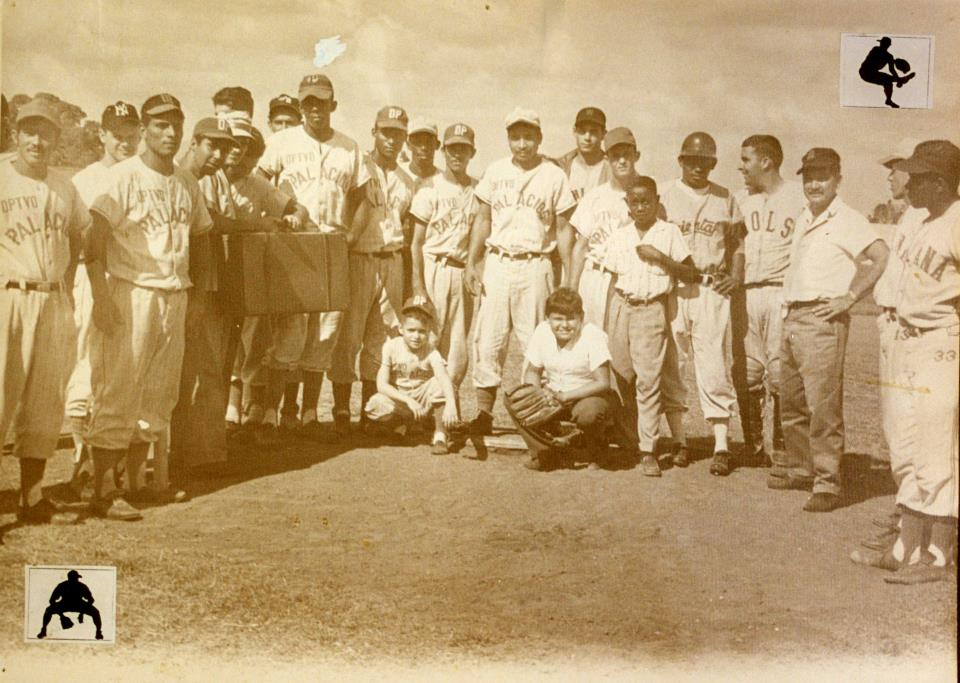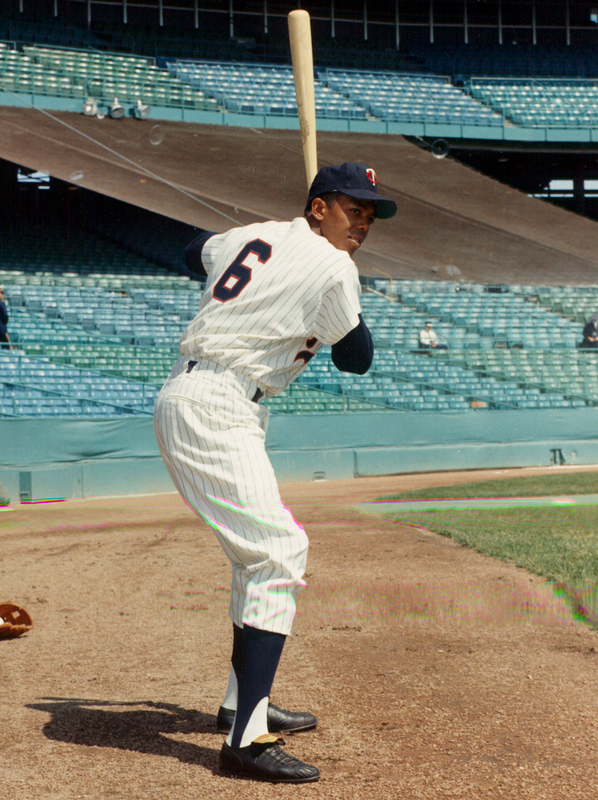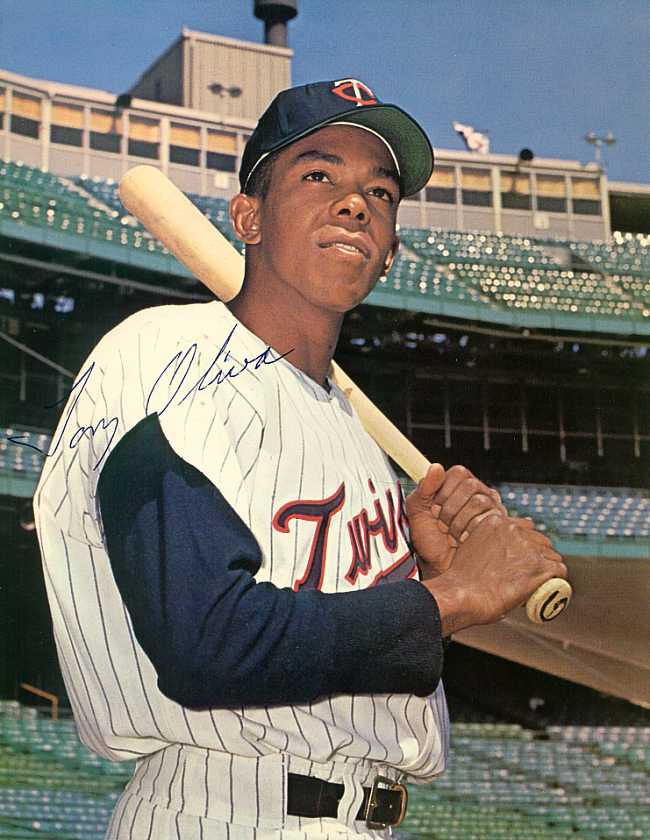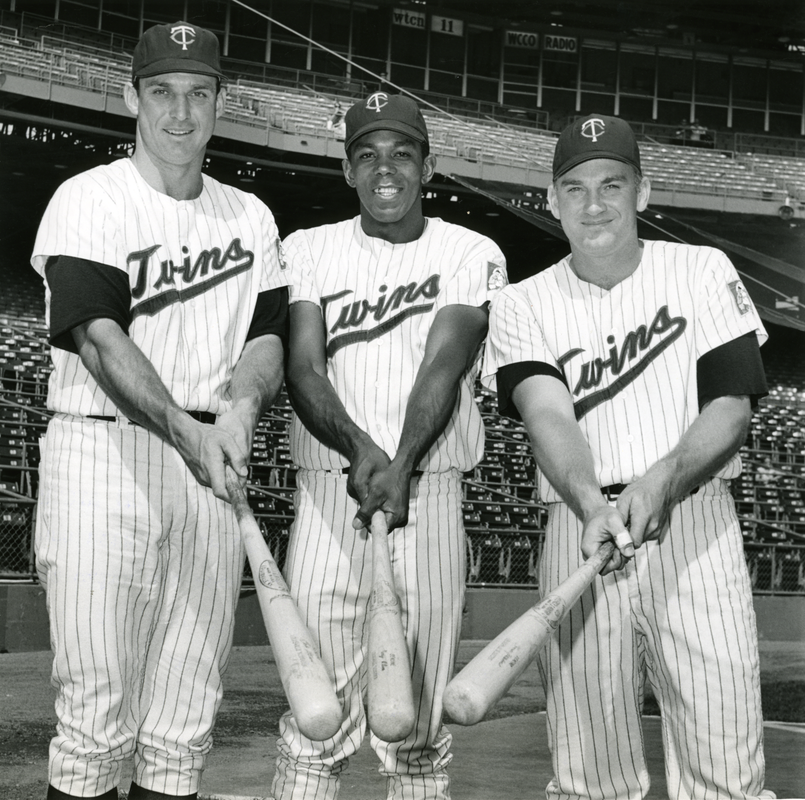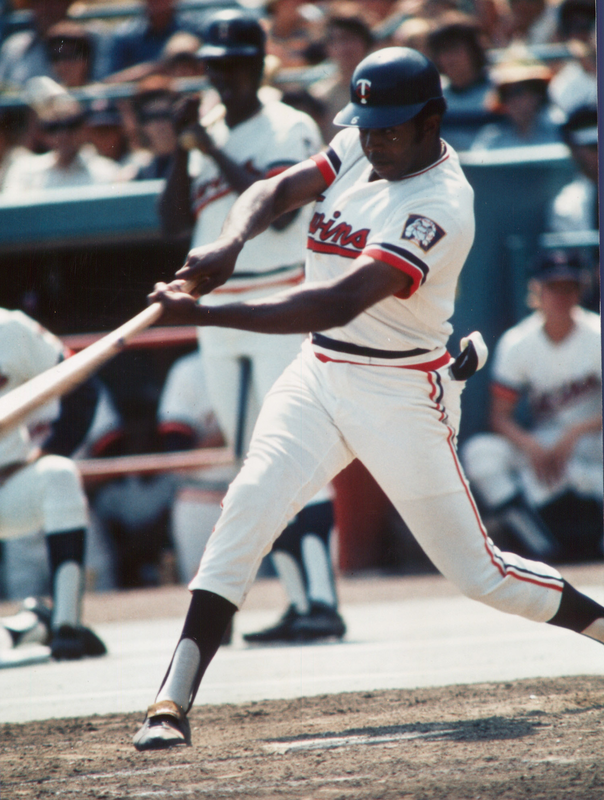|
Oliva was born in Pinar del Río Province, Cuba. He played baseball weekly with his father, brothers, and neighbors in a vacant lot near the family farm. Oliva's father, who worked in a tobacco factory and was famous for rolling the best cigars, was also a former semi-professional player who instructed Tony and helped him become "the best hitter in Pinar del Río". A scout for the Minnesota Twins noticed the youth and brought him to the United States to play professionally. He was reluctant to leave his parents and nine siblings, but his father encouraged him to become "rich and famous" in America. |
Minor Leagues
|
Oliva arrived in the US in the spring of 1961, just 8 days before the Bay of Pigs. During spring training that year, he appeared in the Twins' final three games, collecting seven hits in ten at bats. In response to the Bay of Pigs, the U.S. gave Oliva the option to stay or return to Cuba, and Oliva chose to stay with the hope of returning home one day.
Having nowhere else to go Oliva traveled to Charlotte, North Carolina to train with a friend who played for a Minnesota Twins Class A farm team. His quick wrists, long frame, and "unharnessed power" impressed Charlotte general manager Phil Howser, who placed a call and convinced the Twins to re-sign the potential star. The Twins assigned Oliva to the class-D Wytheville Twins in the Appalachian League, where he played in 64 games and led the league with a .410 batting average, but had a low fielding percentage of .854. After finishing second to Orlando Cepeda in batting average in the Puerto Rico leagues in winter ball, Oliva was sent to single-A Charlotte in the South Atlantic League, where he played 127 games and hit .350 with 17 home runs and 93 RBIs. He was called up to the major leagues with nine games left and debuted for the Twins on September 9, 1962, hitting a searing .444 in 12 plate appearances. In 1963, he was invited to spring training with the Twins and management hoped that the lefty Oliva would counterbalance their right-handed sluggers Bob Allison and Harmon Killebrew. While there, he became friends with teammate, and fellow Cuban, shortstop Zoilo Versalles, who quickly became convinced that Oliva was "the new Ty Cobb", citing their similarities in hitting ability, speed, and arm strength. However, Oliva failed to make the Twins' major league team and was assigned to the Dallas-Fort Worth Rangers, the club's Class AAA affiliate in the Pacific Coast League. He finished the minor league season with a .304 batting average with 23 home runs and 74 RBI. This earned him a call up for the final few games of the 1963 major league season. Once again he responded with a sizzling bat, hitting .429 in just 7 at-bats. |
“Tony is one of the best hitters I’ve ever seen,” -Billy Martin |
Major Leagues
|
Compiling one of the great freshman campaigns in baseball history, Oliva was selected as a near-unanimous 1964 American League (AL) Rookie of the Year, receiving 19 of 20 first-place votes. Oliva was voted to his first All-Star game in his rookie year, but went 0-for-4 at the plate. His AL-leading .323 batting average made him the first player ever to win both the Rookie of the Year Award and AL batting title.He also paced the AL in hits (217), doubles (43), extra base hits (84), total bases (374), runs (109), and runs created (133). Oliva's 374 total bases tied a rookie record. Oliva finished fourth in MVP voting.
In 1965, Oliva won a second straight AL batting title with a .321 average, his back-to-back wins once again a baseball first. His performances were all the more noteworthy for falling right at the onset of baseball's "second deadball era", with only two other AL hitters reaching the .300 mark that season, (Carl Yastrzemski (.312) and Vic Davalillo (.301)). Oliva added 16 home runs, 98 runs batted in, and 107 runs. He led the AL in hits (185), runs created (108), sacrifice flies (10), and batting average (.321), good for a second-place finish in MVP voting to teammate Versalles. In his second All-Star game, Oliva entered as right fielder in the eighth inning, replacing game starter Rocky Colavito, and had a double in the ninth inning after pinch hitting in the seventh inning and grounding out. Through the end of July in 1966, Oliva was leading the league with a .328 average. However, between August 21 and August 28 and September 13 and September 21, he slumped badly, collecting three hits in 29 at bats and four hits in 34 at bats respectively, which cost him a chance at his third straight batting title. Oliva finished with a .307 batting average and was the runner-up to Triple Crown winner and AL MVP Frank Robinson, who hit .316. For the third year in a row, Oliva led the AL in hits (191). Additionally, he won his only Gold Glove award, and finished sixth in MVP voting. One of the season's highlights came on June 9, 1966, in the seventh inning of a game against the Kansas City Athletics, where Oliva joined Harmon Killebrew, Don Mincher, Rich Rollins and Versalles to hit five home runs in a single inning. These five home runs, hit off starter Catfish Hunter (three) and reliever Paul Lindblad (two), stand as of 2021, tying an MLB record for the most home runs in a single inning. After a somewhat off 1967, where he led the AL with 37 doubles and finished in the top 10 in batting average, slugging percentage, hits, total bases, RBIs, runs created, extra base hits, and intentional walks, Oliva's rebound in 1968 was cut short by injury. Missing the last 34 games, he once again hit .289, but so depressed were batting averages it was good for third in the AL by a single point (and only batting champ Yastrzemski topping .300 by a single point as well). He returned to form in 1969 to again place third in the AL with a .309 batting average, with 24 homers, 101 RBIs, and league leads in hits (197) and doubles (39). He finished third in batting average in the American League in 1970 at .325, with 23 home runs and 107 RBIs. He also led the AL in hits (204) for the fifth time, in doubles (36) for the fourth time, and finished second in MVP voting for the second time, this time to Baltimore's Boog Powell. In 1971, Oliva won his third AL batting title with a .337 average and led the league in slugging percentage (.546). These feats at the end of a skein of eight straight All-Star appearances that began his rookie season marked the high point of his career, as severe knee, leg, and shoulder injuries hampered his remaining playing days. His roommate Rod Carew often heard Oliva "moaning and groaning" and getting up to obtain ice for his sore knees during the night. He missed all but ten games of the 1972 season, which required season-ending surgery. Due to injuries and a 1973 American League rule change establishing a new position, he became the Twins' designated hitter that spring and remained in that role his final four seasons. Oliva would hit the first home run by a DH in league play on April 6, 1973. Oliva was a coach for the Twins after he retired as a player. As such, he holds the distinction of being the only on-field team member to appear with all three Minnesota Twins' World Series teams: star outfielder in 1965, hitting coach in 1987 and bench coach in 1991. |
“To me, he is the greatest player from our country to play in the big leagues in the last twenty five years. He may be the greatest ever…I believe Tony has the ability to be another Ted Williams; he is that good a hitter. But in addition to his hitting, I’ve always admired the way Tony for the way he represented baseball and Cuba. He has been a first class player on and off the field.” |
|
Tony Oliva
Career
MLB Accolades
|
